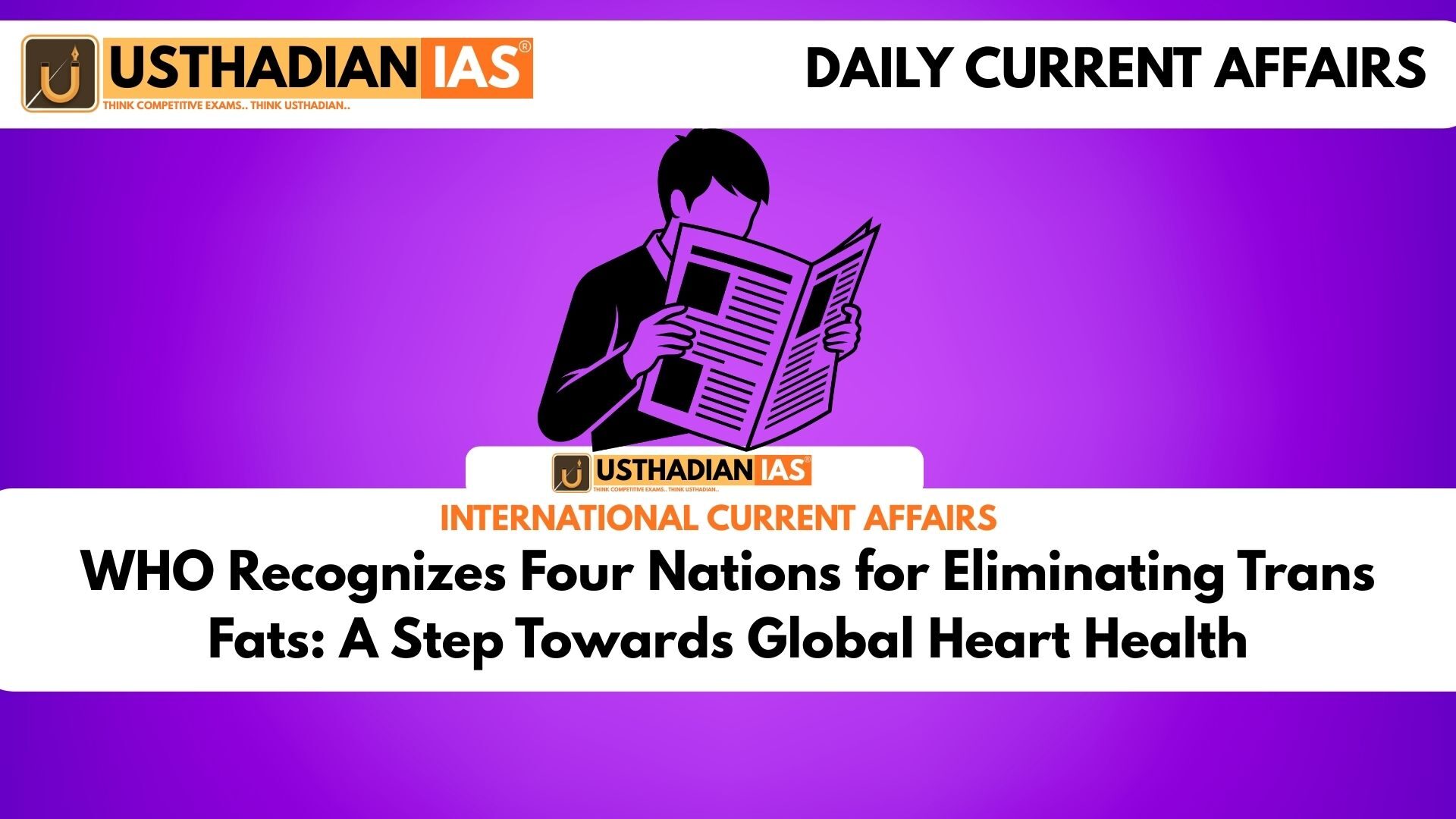WHO Applauds Four Nations for Leadership
WHO Recognizes Four Nations for Eliminating Trans Fats: A Step Towards Global Heart Health: During the 78th World Health Assembly in Geneva, the World Health Organization (WHO) formally recognized Austria, Norway, Oman, and Singapore by awarding them validation certificates for their achievement in removing industrially produced trans fats from their food systems.These nations implemented best-practice policies with strong monitoring systems, earning international recognition for safeguarding public health. Despite this progress, only 60 countries had adopted similar policies by May 2025, covering just 46% of the global population.
What Are Trans Fats and Why Are They Harmful?
Trans fats, also known as trans-fatty acids (TFA), are unsaturated fats found in both natural (in meat and dairy) and industrial forms (used in baked, fried foods, and margarine). The industrial variety, produced via hydrogenation of vegetable oils, is particularly dangerous. It contributes to over 278,000 deaths annually, mainly due to heart disease and stroke. Even in small quantities, trans fats significantly raise bad cholesterol (LDL) while reducing good cholesterol (HDL).
WHO’s 2018 Initiative and India’s Progress
In 2018, WHO launched a global initiative to eliminate industrial trans fats by 2025, aiming to cover 90% of the global burden. Initially, only 11 countries had adopted best practices, reaching just 6% of the world’s population. The 2025 goal was to have 70% population coverage in every WHO region.
India took a major step in this direction by limiting trans fats in food products to 2% starting January 2022. Other countries like South Africa and Nigeria have also aligned with WHO’s model policies, especially in Africa, where cardiovascular disease is rising rapidly.
Economic and Public Health Impact
WHO highlights that eliminating trans fats is highly cost-effective, providing long-term economic and health benefits. Replacing trans fats with healthier oils not only saves lives but also reduces the burden on healthcare systems. This strategy offers a high return on investment by lowering the risk of non-communicable diseases and boosting overall workforce productivity.
Future Plans and Validation Process
WHO remains committed to its vision. Countries seeking recognition must meet stringent implementation standards, prove active enforcement, and ensure public awareness. The third round of the validation process will be open until August 31, 2025, allowing more nations to join this global effort against trans fat.
STATIC GK SNAPSHOT
| Topic | Details |
| WHO Recognition (May 2025) | Austria, Norway, Oman, Singapore |
| Total Countries with Policies | 60 (Covering 46% of global population) |
| Trans Fat Limit in India | 2% (Since January 2022) |
| Annual Deaths Due to Trans Fats | Over 278,000 globally |
| WHO Initiative Launch | 2018 |
| WHO Elimination Goal | 90% burden coverage by 2025 |
| WHO Validation Deadline | August 31, 2025 |








